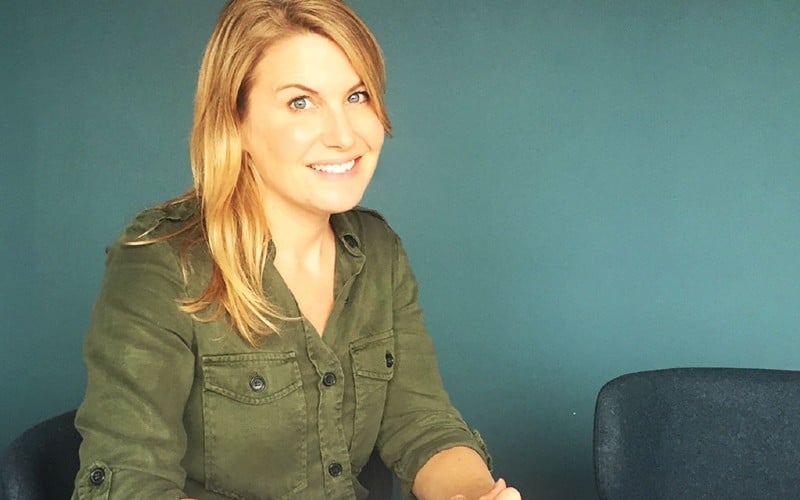Alex Farrell is a successful entrepreneur, non-executive director and investor – but amongst the successes, there have also been some losses.
In 2000 she launched website The IT Job Board and grew it to become the largest tech careers site in Europe, with offices in London, Amsterdam and Frankfurt, before selling in 2013 to Dice, a company listed on the New York Stock Exchange.
Following her successful exit, she founded Gift Wink with Rebecca McAra in 2015. A platform where users could get timely gift ideas for birthdays and other occasions, she told BusinessCloud in 2017 that it was inspired by her inability to remember her niece’s birthday or decide what to buy for her.
“The key thing that went wrong was that I assumed – very naively – that all two-sided marketplace businesses are pretty much the same thing: I referred to it as a platform that just happened to sell stuff,” she tells the Secret Leaders podcast.
“I categorised it as a technology platform business, as opposed to a retail business… all the other problems stemmed from that. It was a technology business, like Tinder is a platform business; but ultimately, Tinder is still a dating business.”
Backed by Mumsnet and quickly acquiring tens of thousands of users, Gift Wink began to attract media attention – but quickly found that supply chain and logistics posed problems far bigger than traditional software challenges.
We are in print! Thank you @BCloudUK https://t.co/aKB048i5NL
— Gift Wink (@giftwink) December 19, 2017
“These are real-life challenges: no matter how good your software is, if you can’t get the retailer to put the product in the post, and it doesn’t arrive on time [then you’ve got a problem],” she explains. “Timing is key in gifting.”
One of her friends runs a large chain of retail fashion shops. “He was very gentle with me: at one point, he said ‘maybe you need somebody who understands retail on your board’. It was a bit of a lightbulb moment.
“I hired a very senior person, ex-notonthehighstreet, an amazing woman who really, really understood not just this market, but the challenges with all of those little suppliers. Who knew that delivery was so complicated? That an extra hour delivery slot meant your conversion rate went up 20%?
“She’d learnt the hard way all these amazing pieces of information that just hadn’t crossed my mind. I’d never been a retailer: I didn’t understand what was important to them, what challenges they faced. So she came in and solved that second part of the marketplace.”
With that solved, understanding just how much funding a B2C retail platform needs to gain long-term traction was the other problem Farrell faced. “That was the second major realisation: it’s going to cost me a lot of money to win lots of small amounts of revenue. In a B2B business, you don’t necessarily need to worry about that so much: you can pick up the phone and get 20 grand in, 30 grand, 100 grand… on a retail platform, you drive a transaction, it’s 30 quid!
“It’s very cutthroat out there in the world of online retail, and there’s not a lot of loyalty. So you do need big budgets and deep pockets to keep your customers. You have to be brutally honest about how hard it is, as opposed to being very optimistic about the numbers.”
I’d tell my younger self: ‘Don’t wait for the storm to pass; dance in the rain’
She adds: “You’re taught as an entrepreneur to be very optimistic about the scale of the business at the start: people don’t want to hear in your fundraising deck ‘look, if it’s really tough, it could cost this much money to win a customer, they might not come back three times, they might only come back one and a half times’… so there is that kind of optimism at the start.
“The reality is in online retail there is a lot of competition out there. And you’re up against some really, really big players who know what they’re doing.”
Faced with the prospect of having to raise £20 million to compete, she decided to look for a buyer instead. But how do you pull off a sale like that with your back against the wall?
“I’ve sold businesses before where you’d have a company helping you, a nice brochure… but we were just too early stage for that, we hadn’t gotten enough traction,” says Farrell. “There was a good piece of tech… but it was much more scrappy.
“I reached out to my network and it was like: ‘Does anybody know anyone in retail? Does anyone know John Lewis?’
“It took six months from start to finish – it was quite a bit of work for a relatively small transaction at the end of it. I came across some very interesting opportunities that I’d never thought of: there were other startups trying to solve the same sort of problem as me, albeit with a slightly different execution plan. They had funding so we went and chatted to them.”
Launching tech business helped me survive terminal diagnosis
She eventually met a buyer at a networking event and sold the business to publishing company DC Thomson – which McAra would subsequently join for three years – in 2019. However, there was a great human cost along the way.
“We did have to let go of the staff because it wasn’t an ongoing concern – we weren’t acquiring customers and selling them stuff,” she says. “We were very sad for that to happen.
“And obviously, [my co-founder and I] weren’t getting paid. You don’t pay yourself in times like that – it was very hard to keep going because feasibly there might not have been a good outcome at the end of it and you just have to shut it down.
“You also know that at some point, you’re going to need to pay your bills, and you’re quite desperate for cash… not knowing when it was going to end and I could move into normality again was the most stressful thing. I’ve got a family, a son, and had some pretty challenging things happening in my home life. Everything sort of went backwards at the same time.
“This wasn’t a multi-million-pound transaction. I didn’t deliver the shareholders returns that I wanted either. So it definitely wasn’t a success.
“The vision of the business didn’t materialise – but actually, I learned a lot from that period: about an eCommerce funnel, the brutality of different business models; having an eye for the real detail; and that, even at your darkest depths time, you can come out the other end.”
Secret Leaders is available on Apple, Spotify and all major podcast platforms.


